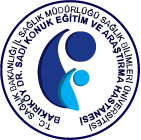ABSTRACT
Objective:
Our aim was to compare the findings of the patients with the complaint of headache with the literature retrospectively.
Material and Methods:
Between May 2006 and May 2014, the cranial MRI findings of 1000 patients who were admitted to our hospital with complaint of headache was interpreted retrospectively and classified into age categories.
Results:
We classified the patients into three groups (5-20 ages, 21-40 ages, patients older than 41 years old). In the first two groups the most common MRI findings were normal cranial MRI findings, and the second one was sinusitis. The rate of sinusitis, is the most common pathology in the group of patients younger than 40 years, is 17% in the group of 5-20 ages and 10% in the group of 21-40 ages. In the group of patients older than 40 years old the most common cranial MRI findings were milimetric T2 and flair hyperintense lesions in the periventricular white matter (49.9%). The second most common findings were mass lesions for this group. The secondary headache rate in this group was set at 21.3%.
Conclusion:
In our study results are consistent with literature as the patients who are older than 40 years old had headache secondary to reasons such as tumor or ischemia more common than the young patients. In the patients older than 40 years old with complaint of headache, the imaging methods are more necessary than the youngers and the imaging will be more suitable with IV contrast agents due to probable mass lesions like menengiomas.



